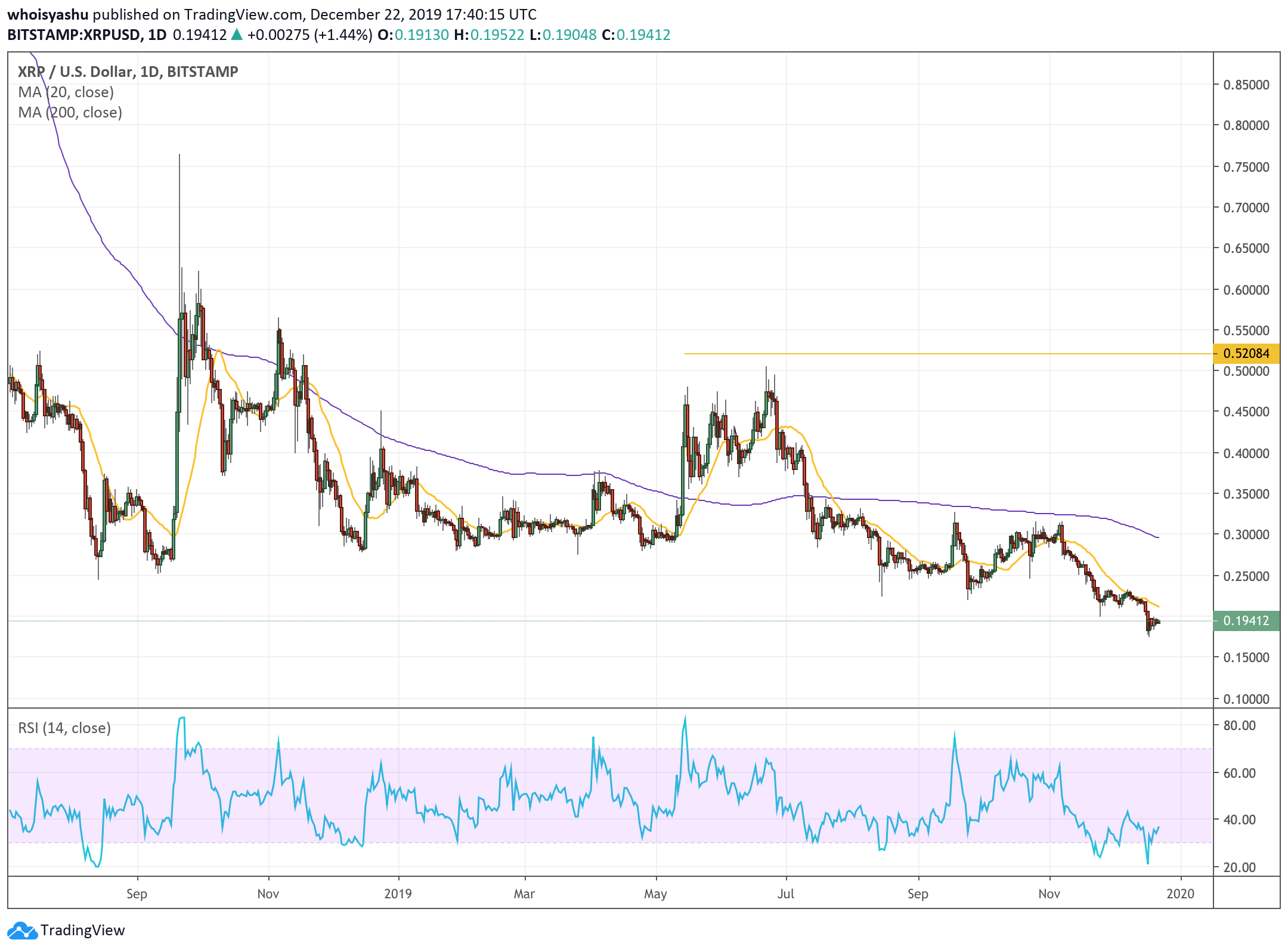Ripple, a company behind XRP cryptocurrency, became a $10 billion blockchain giant after raising $200 million in a funding round earlier this month. But according to one prominent trader, the San Francisco firm has no value.
Tone Vays, a former Wall Street trader and vice president of JP Morgan Chase, criticized Ripple for sucking value out of the XRP cryptocurrency. The analyst said that to fund its operations. He added that Ripple has a “ridiculous financial advantage” over startups that generate operational liquidity by legal means.
“The Ripple token now – more or less – act as a security of the Ripple corporation,” said Mr. Vays. “It was launched illegally; it was launched without compliance. And I think the people who created it should be held accountable.”
'Crypto-Currency Act of 2020' indicates that is not a security.
Brad Garlinghouse, CEO of Ripple
— HODL (@HodlStyle)
XRP Plunges as Ripple Expands
Launched in 2012, Ripple rose to prominence after its native cryptocurrency XRP skyrocketed in value during the 2017’s notorious ICO boom.
XRP was introduced as a tool to facilitate cross border transactions over Ripple’s blockchain of the same name. The token later gained fame owing to its potential use as a settlement token for inter-banking systems. Ripple’s significant partnerships, including its recent investment in the globally renowned payment company MoneyGram, also promised to pave the way for XRP adoption.
Such expansions further allowed the first generation of XRP investors to hold the token as a valuable asset.
At its highest in January 2018, the token had jumped above the $3 valuation. But it has since undergone two very strong downside correction cycles. Just this week, XRP hit a low of $0.174, down about 94 percent from its all-time high.

Corrupt Buyback?
Critics, including Mr. Vays, have blamed Ripple and its foundational team for orchestrating XRP’s plunge. Nevertheless, Brad Garlinghouse, the chief executive of Ripple Labs, said that they had stopped whales from dumping a large quantity of XRP by putting buyers into under so-called “selling-restrictions.”
“We are already 10 or a 100 times more transparent than anyone else in the crypto community and we’ve got a tact for doing that. And, I think you just asked me to be more transparent. I think I’m going to pass,” Mr. Garlinghouse said during his interview with Anthony Pompliano.
But the explanation did not sit well with the critics who lambasted Mr. Garlinghouse ignored to generalize what those selling restrictions were.
has lost 95% from the peak, there seems to be no use case for it & the company that created it just raised $200m in a C round (which is normally 10-20% ownership).
Did they essentially buy a large % of the crypto by proxy? Confusing. Theories?
— @jason (@Jason)
Mr. Vays said he sees XRP as a bad investment. The analyst questioned why Ripple, which actively dumps XRP on its investors, suddenly had to raise hundreds of millions in funding.
“Maybe they [Ripple Labs] want to continue pumping the price of XRP, which seems to be the only priority for anyone involved in Ripple,” he theorized.
Featured Image from Shutterstock












